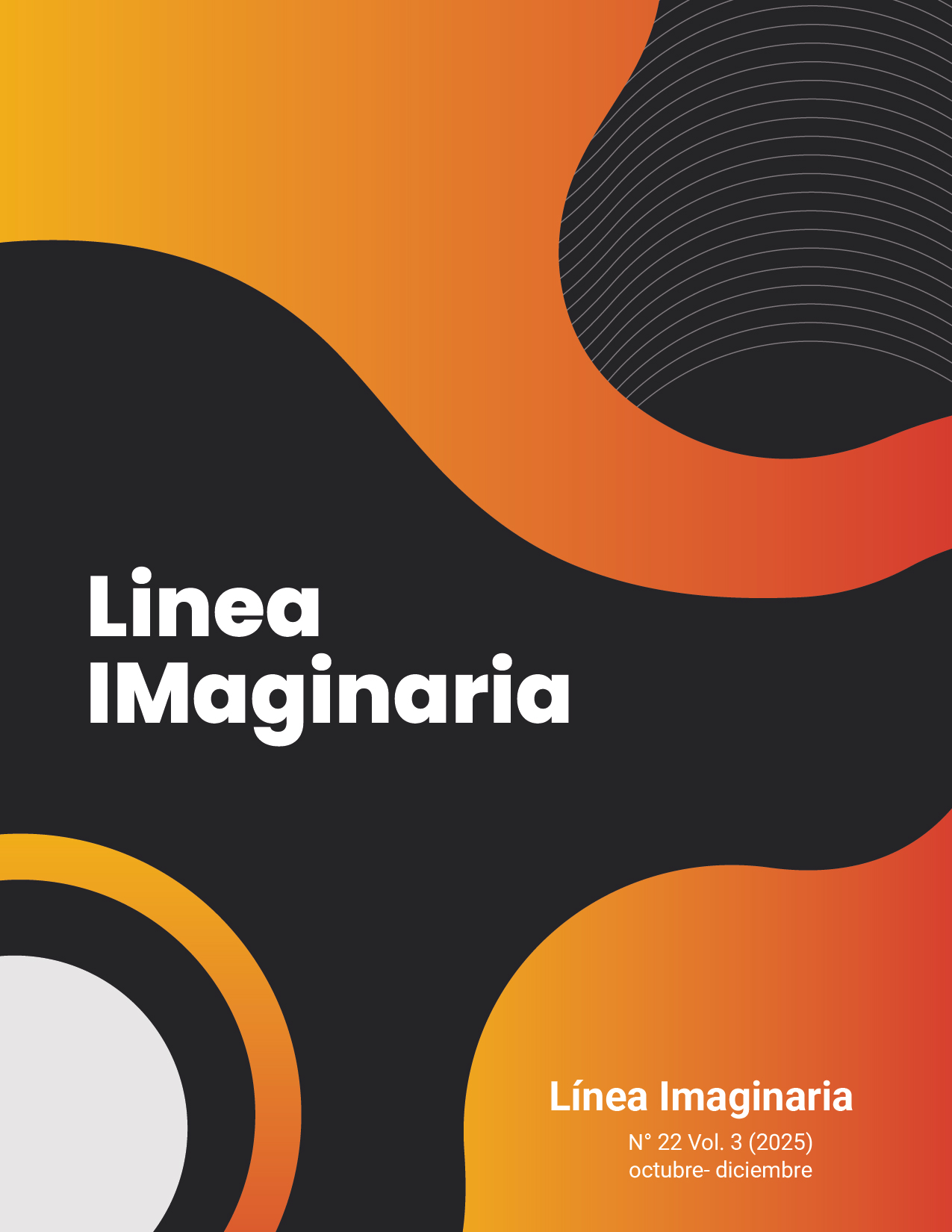REFLECTIONS ON LIBERATING EDUCATION IN TERRITORIES MARKED BY VIOLENCE AND THE POST-AGREEMENT PERIOD IN COLOMBIA
DOI:
https://doi.org/10.56219/lneaimaginaria.v3i22.4658Keywords:
liberating education, marked territories, violence and post-agreement in ColombiaAbstract
Education today is facing relevant aspects every day, such as the advances that have been presented in the technologies that fall largely on education; reason that shows that today teachers assume the instructional resources as the means to carry out the educational action and it is thus worth referring to the liberating education assuming as a north the objective that says: to reflect on a liberating education in territories marked by violence and post-agreement in Colombia; without any doubt, a situation that is quite careful where it can be seen that a qualitative methodology is used in this theoretical approach through a systematic review focused on the technique of content analysis; which converges in a scientific essay that brings with it a set of premises focused on what is the basis of the topic that is being addressed and which are essential elements that lie in offering actions for those involved in the teaching processes to channel activities that strengthen the teaching and learning process, thus generating quality in the research processes.
Downloads
References
Agencia de la ONU para los refugiados (ACNUR). (2025). Urge fortalecer la respuesta frente al desplazamiento masivo sin precedentes en el Catatumbo, Colombia. https://www.acnur.org/noticias/comunicados-de-prensa/acnur-
Calderón, J. (2016). Etapas del conflicto armado en Colombia: hacia el posconflicto. Latinoamérica. Revista de estudios Latinoamericanos, de http://www.scielo.org.mx/scielo.php?script=sci_arttext&pid=S166585742016000100227&lng=es&tlng=es.
Cruz, E. (2020). La educación transformadora en el pensamiento de Paulo Freire. Revista Educere volumen 24 número 78. https://www.redalyc.org/journal/356/35663284002/html/
Genoy, J., y Rivas, H. (2024). La metodología del Aprendizaje Basado en Problemas como propuesta didáctica para promover el pensamiento científico. Universidad Nacional Abierta y a Distancia UNAD, Escuela de Ciencias de la Educación, Maestría en Educación, Bogotá, Colombia. https://repository.unad.edu.co/bitstream/handle/10596/64323/10301262.pdf?sequence=1&isAllowed=y
Ley 115. (1994). Artículo 5. Ley General de Educación. Congreso de la República. https://www.mineducacion.gov.co/1621/articles-85906_archivo_pdf.pdf
Mosquera, J. (2023). Aprendizaje liberador hacia una visión transdisciplinaria de la educación rural. Universidad Pedagógica Experimental Libertador. Sinopsis educativa. Revista venezolana de investigación año 23 numero 2. https://revistas.upel.edu.ve/index.php/sinopsis_educativa/article/download/3619/4042/8666
Niebles, M. (2014). La educación liberadora desde la visión del desarrollo endógeno en liceos bolivarianos. universidad Pedagógica Experimental Libertador, Instituto Pedagógico de Barquisimeto Luis Beltrán Prieto Figueroa, Barquisimeto estado Lara, Venezuela. Revista Educare volumen 18 número 2. https://revistas.investigacion-upelipb.com/index.php/educare/article/download/136/136/156 DOI: https://doi.org/10.46498/reduipb.v18i2.136
Organización de las Naciones Unidas (ONU). (2022). Violencia Territorial en Colombia: Recomendaciones para el Nuevo Gobierno. Oficina del alto Comisionado. https://www.ohchr.org/sites/default/files/2022-07/reporta-Informe-
Osorio, V. (2023). Acuerdo de paz y post acuerdo colombiano, ¿expectativa o realidad? Medellín, Colombia. Revista de la Facultad de Derecho y Ciencias Políticas volumen 52 número 137. http://www.scielo.org.co/scielo.php?script=sci_arttext&pid=S0120-38862022000200367 DOI: https://doi.org/10.18566/rfdcp.v52n137.a01
Parra, C. (2020). El posconflicto y la construcción de paz: La mediación como solución alternativa en la región del Catatumbo. Universidad Simón Bolívar Cúcuta, Colombia. Eirene Estudios de Paz y Conflictos volumen 3 número 4. https://portal.amelica.org/ameli/jatsRepo/183/1831801006/html/index.html DOI: https://doi.org/10.62155/eirene.v3i4.81
Ríos, J. (2017). Breve historia del conflicto armado en Colombia. Araucaria: Revista Iberoamericana de Filosofía, Política y Humanidades, volumen 19 número 38. https://www.redalyc.org/journal/282/28253016026/html/
Ríos, J., Bula, P., y Morales, J. (2019). Departamentos de frontera y violencia periférica en Colombia. Bogotá, Colombia. Revista Criminalidad volumen 61 número 2. http://www.scielo.org.co/scielo.php?script=sci_arttext&pid=S179431082019000200113#:~:text=
Rodríguez, L. (2016). Ensayo Freire y Constructivismo. Costa Rica. https://es.scribd.com/document/325173345/
Thomas, J. (2021). Territorio, violencia y desastres en Colombia: un acercamiento a la memoria histórica ambiental. Universidad del Rosario. Revista Territorios número 45. https://revistas.urosario.edu.co/xml/357/35770342013/html/index.html
Toro, K., Amaya, T., y Romero, C. (2021). La cátedra de la paz como eje de desarrollo social de cara al posconflicto. Revista Estudios pedagógicos volumen 47 número 1.https://www.scielo.cl/scielo.php?script=sci_arttext&pid=S0718-07052021000100355 DOI: https://doi.org/10.4067/S0718-07052021000100355
Downloads
Published
How to Cite
Issue
Section
License

This work is licensed under a Creative Commons Attribution-NonCommercial-ShareAlike 4.0 International License.
La revista Línea Imaginaria conserva los derechos patrimoniales (copyright) de las obras publicadas, que favorece y permite la reutilización de los mismos bajo la licencia Creative Commons Atribución-NoComercial-CompartirIgual 4.0 , por lo cual se pueden copiar, usar, difundir, transmitir y exponer públicamente, siempre que se cite la autoría y fuente original de su publicación (revista, editorial, URL y DOI de la obra), no se usen para fines comerciales u onerosos y se mencione la existencia y especificaciones de esta licencia de uso. Si remezcla, transforma o crea a partir del material, debe distribuir su contribución bajo la misma licencia del original.













